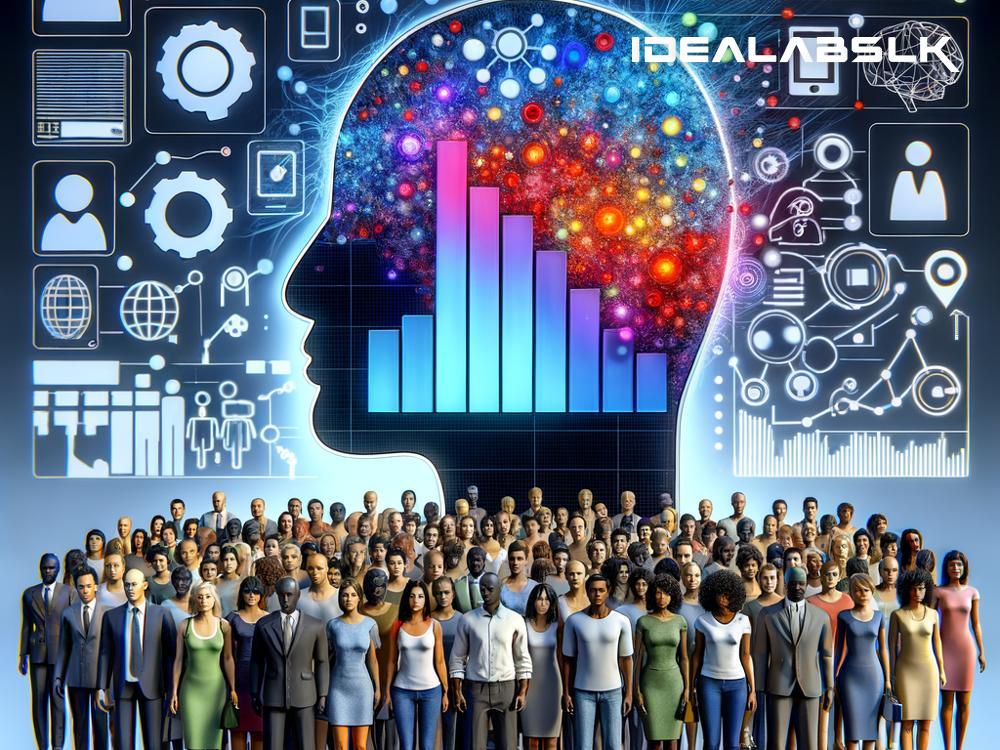The Role of AI in Predictive Consumer Preferences
Unlocking the Future of Shopping with Artificial Intelligence
Imagine a world where your shopping experiences are so tailored to your tastes and needs that it feels like magic. No more sifting through endless options or dealing with buyer's regret. This is not a scene from a sci-fi movie; it's the present and future, thanks to Artificial Intelligence (AI).
AI has revolutionized the way businesses understand and predict what consumers want, often even before they know it themselves. This game-changing technology is reshaping shopping, making it more personalized, efficient, and surprisingly intuitive. Let's delve into how AI is unlocking the future of predictive consumer preferences.
Understanding Consumer Preferences with AI
At its core, AI works by processing vast amounts of data, learning patterns, and making informed predictions. When it comes to shopping, AI algorithms analyze your past purchases, browsing history, and even social media activity to understand your preferences and dislikes. This technology is like a very attentive friend who remembers all your choices, no matter how small, and uses this information to help you make future decisions.
Predictive Personalization: The Magic Touch
The true power of AI lies in its ability to offer predictive personalization. Imagine logging onto your favorite shopping site and being greeted with recommendations that feel handpicked for you. From the perfect pair of shoes to the latest gadget you've been curious about, AI ensures that what you see resonates with your tastes and interests. This is not random; it's a sophisticated analysis of your consumer behavior predicting what you'll likely want next.
Enhancing Shopping Experiences
Predictive consumer preferences powered by AI are not just about making accurate recommendations; they're about enhancing the overall shopping experience. By understanding what consumers are looking for, businesses can streamline their offerings, making shopping more enjoyable and less overwhelming. This doesn't just apply to online shopping. Physical stores are also using AI to create personalized in-store experiences, such as interactive fitting rooms and personalized shopping assistance.
Predictive Analytics: A Win-Win Scenario
The use of AI in predicting consumer preferences is a win-win for both businesses and consumers. For shoppers, it means more relevant choices, better deals, and a more enjoyable shopping experience. For businesses, it leads to increased customer satisfaction, loyalty, and ultimately, sales. Additionally, predictive analytics allows businesses to manage their inventory more efficiently, reducing waste and ensuring that popular products are always in stock.
The Ethical Considerations
While the benefits of AI in predictive consumer preferences are clear, it's important to address the ethical considerations. The use of personal data must be handled with the utmost care, respecting privacy and consent. Transparency about how data is used and providing consumers with control over their information are crucial steps in building trust.
The Future of Shopping
The role of AI in shopping is only set to grow. As technology advances, AI's predictive capabilities will become even more sophisticated, making shopping experiences more personalized and intuitive. We might see innovations like virtual try-ons becoming the norm or AI-powered shopping assistants that can converse with us to find the perfect product.
In conclusion, AI's role in predictive consumer preferences is transforming the shopping landscape. By understanding individual tastes and crafting personalized experiences, AI is not just predicting what consumers want; it's paving the way for a future where shopping is more about enjoyment and discovery. As we navigate this evolving landscape, the focus should always be on using AI responsibly, ensuring that while we enjoy the conveniences it offers, we also safeguard our personal data and maintain our privacy. Welcome to the future of shopping, powered by AI.

